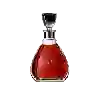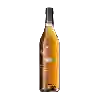
Winery Claire MayolBanyuls Gratallops
This wine generally goes well with beef and mature and hard cheese.
Food and wine pairings with Banyuls Gratallops
Pairings that work perfectly with Banyuls Gratallops
Original food and wine pairings with Banyuls Gratallops
The Banyuls Gratallops of Winery Claire Mayol matches generally quite well with dishes of mature and hard cheese, blue cheese or aperitif such as recipes of savoyard fondue (but succulent), endives with ham and blue cheese or emulsion of foie gras with pata negra.
Details and technical informations about Winery Claire Mayol's Banyuls Gratallops.
Discover the grape variety: Gros Verdot
Girondine most certainly like the Petit Verdot. It is almost no longer present in the vineyard, no longer multiplied and therefore very clearly on the way to extinction.
Informations about the Winery Claire Mayol
The Winery Claire Mayol is one of wineries to follow in Banyuls.. It offers 11 wines for sale in the of Banyuls to come and discover on site or to buy online.
The wine region of Banyuls
Banyuls wines come from the South-eastern Part of Roussillon, in the south of France, in the lower Pyrenees, a few kilometres from the Spanish border. These naturally Sweet wines are consumed both as an aperitif and as a dessert. They come in a wide range of hues, from GoldenGreen (Banyuls Blanc) to Amber (Banyuls Ambré) to the intense garnet of the standard Banyuls Rouge. Unusually among the natural sweet wines of France, all Banyuls wines are made primarily from Grenache grapes of various colors.
The wine region of Languedoc-Roussillon
Languedoc (formerly Coteaux du Languedoc) is a key appellation used in the Languedoc-Roussillon wine region of southern France. It covers Dry table wines of all three colors (red, white and rosé) from the entire region, but leaves Sweet and Sparkling wines to other more specialized appellations. About 75% of all Languedoc wines are red, with the remaining 25% split roughly down the middle between whites and rosés. The appellation covers most of the Languedoc region and almost a third of all the vineyards in France.
The word of the wine: Chartreuse
In the Bordeaux region, small castle from the 18th or early 19th century.














